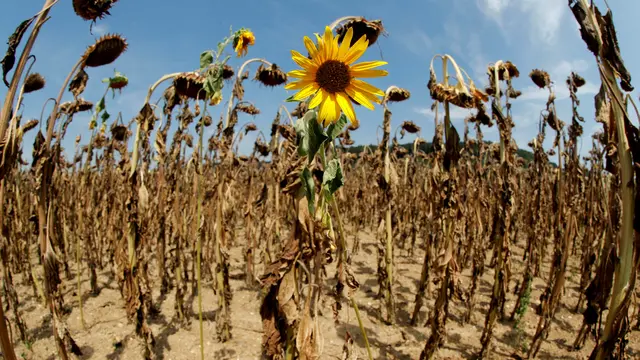Floods, wildfires and heatwaves. That’s just a taste of some of the natural disasters the northern hemisphere experienced this summer, and experts say it’s all fueled by climate change.
Nearly 200 people died in floods across parts of Europe, and another few hundred went missing. Wildfires destroyed thousands of hectares in the Mediterranean, and claimed the lives of at least eight people and displacing hundreds. While Turkey is battling the blazes, flash flooding in other parts of the country claimed the lives of more than 25 people.
The scorching temperatures across three continents, North America, Europe and Africa, are not only feeding the devastating wildfires, but are creating dangerous health conditions and worsening droughts.
This is the climate crisis experts warned about for the last two decades. The National Oceanic and Atmospheric Administration announced July was the hottest monthsince it began keeping records 142 years ago.
The United Nations is also sounding the alarm. A U.N. report on the state of climate change highlighted the threat of extreme weather events, including how global warming will make heat waves both more frequent and intense.
The U.N.'sIntergovernmental Panel on Climate Changealso found that these severe heat waves will most likely occur once per decade. Before, it was once every 50 years.
Theoppressive heat that torched the U.S. and Canadian Pacific coast this summer shows just how dangerous it can be.
Hundreds of deaths were linked to the high temperatures, and over 35 cities in the U.S. states of Washington and Oregon tied or set new temperature records.
Climate change is exacerbating these events because man-made emissions trap greenhouse gases, causing average temperatures to increase. Changes to baseline temperatures mean heat waves are likely to be severe when they do happen. Even small increases in average temperatures amplify the extremes, according to Gerald Meehl, a senior scientist at the National Center for Atmospheric Research in Colorado.
Global warming can also create feedback loops that make other extreme events more likely to occur. Droughts can intensify heat waves because the sun more easily heats the ground when there is less moisture in the soil to evaporate.
Many scientists who’ve foreshadowed these climate change effects years ago are stunned at the rate we’ve experienced the wild weather events. According to Philip Mote, a climate scientist at Oregon State University, he did not expect for it to get this bad this fast.
(CGTN)
 简体中文
简体中文

